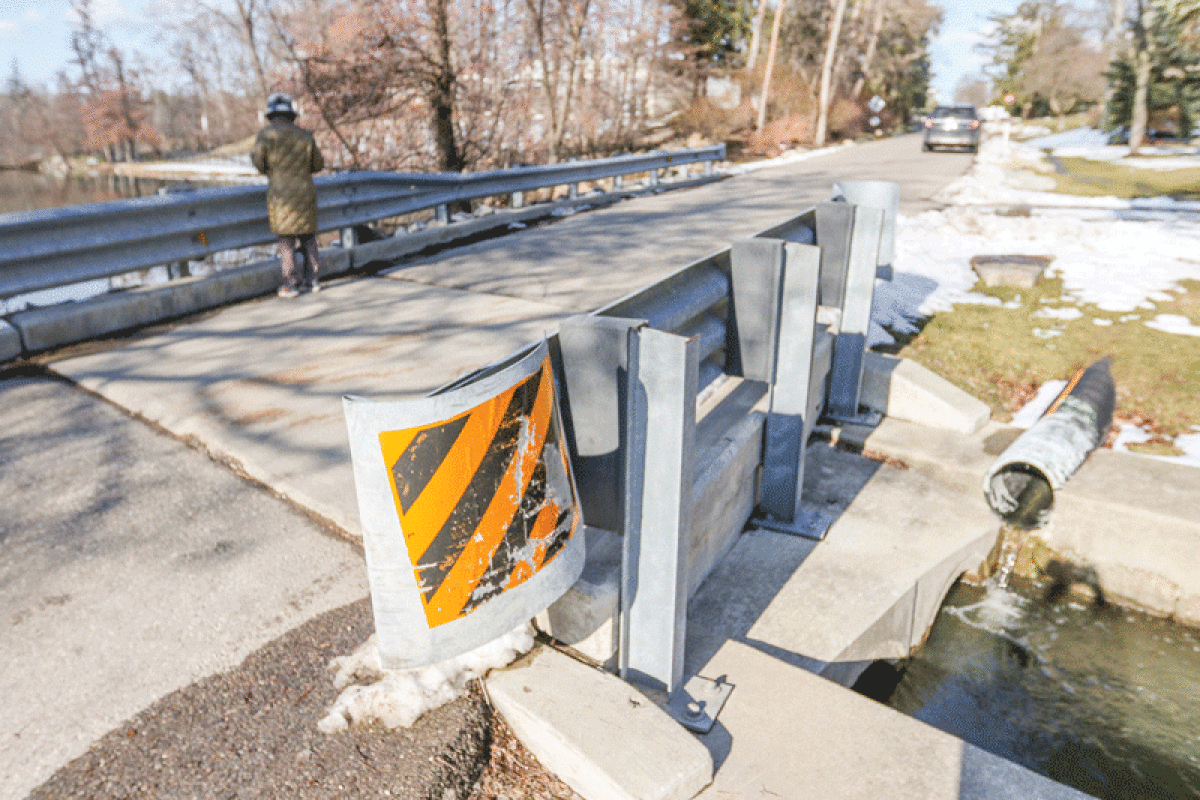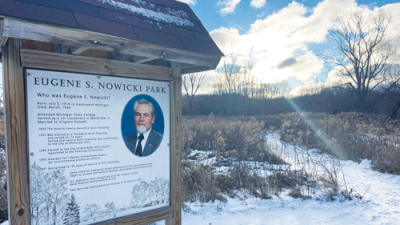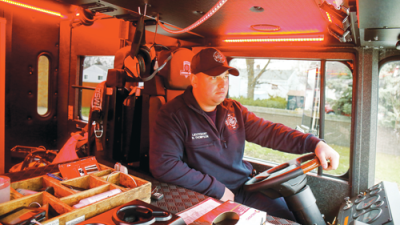BLOOMFIELD HILLS — The Bloomfield Hills City Commission discussed potential options to rehabilitate or replace the Chesterfield Road bridge Feb. 14.
The commission unanimously decided to accept a proposal by Hubbell, Roth and Clark Inc. to complete a hydraulic analysis. HRC’s services for this analysis are not to exceed $17,850.
Lia Michaels, the manager of the transportation department for HRC, presented HRC’s proposal. HRC Vice President James F. Burton was also present at the meeting to answer the commission’s questions.
In order to receive an Environment, Great Lakes, and Energy floodplain permit, a hydraulic analysis to ensure the proposed rehabilitation does not cause harmful impacts is required. This analysis will help the city decide on the most feasible option. HRC planned to begin work within 90 days of the city’s authorization.
The Chesterfield Road bridge is part of the city’s biannual inspections that are required by the Michigan Department of Transportation and the Federal Highway Administration. They have previously been biannual, but because of some rehabilitation needs, they are now inspected on an annual basis.
There are two culvert pipes in this location. In 2021, weight restrictions were put in place that currently only allow up to a 46-ton truck to pass the crossing.
When it was inspected in June 2022, there were signs of deterioration. When it was inspected again in January, there appeared to be an increased amount of deterioration. This kind of deterioration is considered normal, officials said.
HRC proposed two options for the city to consider as the most feasible and cost-effective way to rehabilitate this crossing. The two options include rehabilitating or replacing the crossing.
The rehabilitation option involves a structural relining of the pipes. This could potentially reduce the hydraulic capacity and increase the base flood elevation.
“By adding the cement, we are decreasing the diameter of the culvert there, so we have to be sure that any decrease in the diameter will still accommodate the flows and still get us through an EGLE permit,” Michaels said.
If the diameter decrease needs an additional outlet, it would possibly be through a third culvert.
There would be some minor road repairs associated with this rehabilitation along Chesterfield. The current cost estimate for this rehabilitation is half a million dollars. The service life would be about 10 to 15 years.
“At this point, we are seeing that these culverts are continuing to deteriorate, and at some point, rehabilitation will no longer be an option,” Michaels said.
The other option presented would be to fully replace the crossing. The type of replacement would also be determined through a hydraulic analysis and through EGLE permitting.
Replacing the crossing would result in a full closure of the road and is estimated to cost a million dollars. The service life on a full replacement would be about 20 to 30 years.
Commissioner Susan McCarthy suggested that rehabilitating it would be “kicking the can down the road” and the cost of replacing it may go up in 10 years.
“If you are going to do it, do it right and fix it right,” McCarthy said.
In response to this, Burton said, “We might be kicking the can down the road, but you are also going to line it up a little bit closer to a decision when that road needs to be redone.”
The rehabilitation option could potentially be done through daily road closures, while the replacement option would shut the road down for three to four months.
HRC proposes that rehabilitation would be the option that is least expensive and least disruptive to the road.
Regardless of which option they choose, the analysis is now required by EGLE to get a permit. Commissioners were unanimously in favor of the proposal.
 Publication select ▼
Publication select ▼















